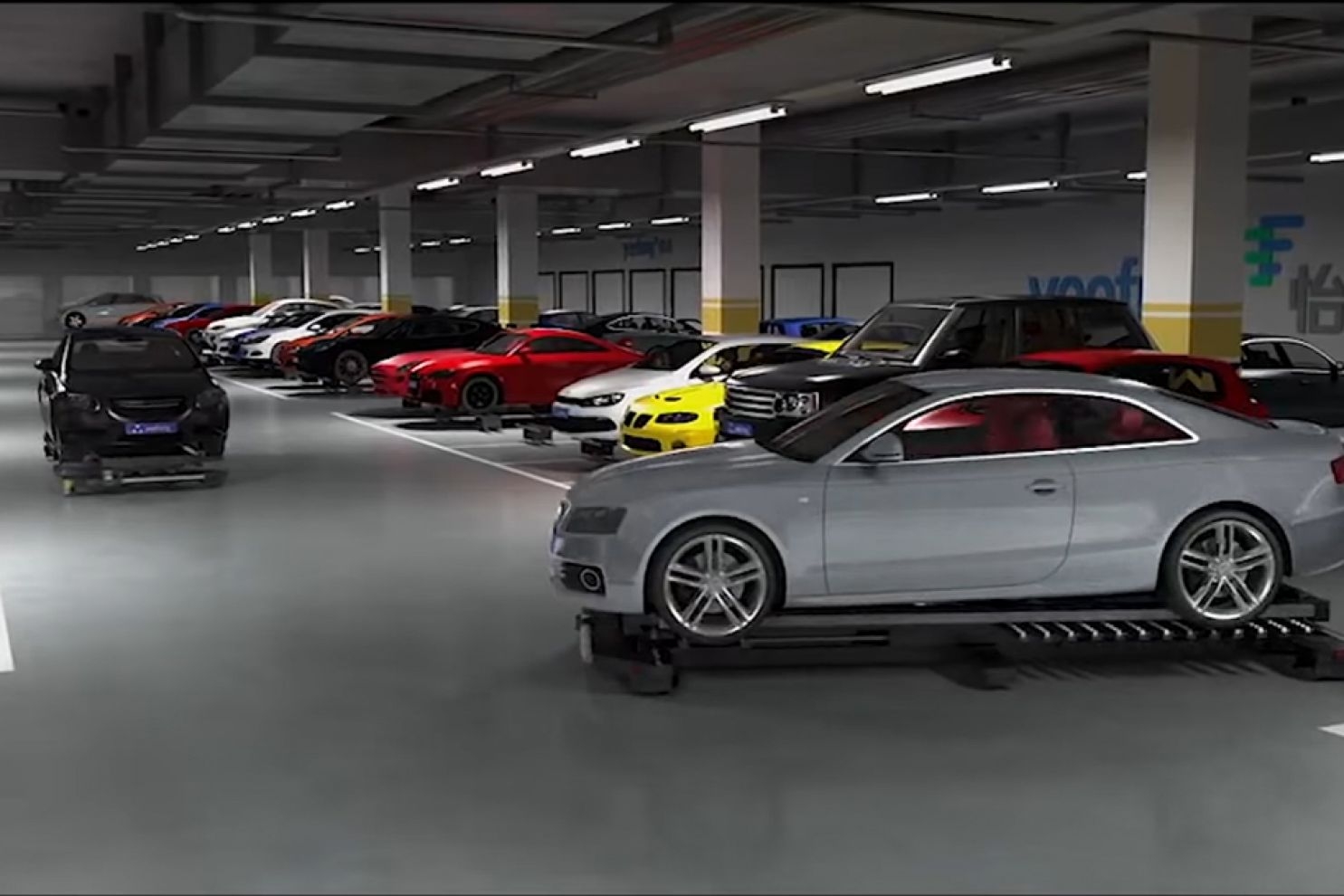Robinson Towers carpark to use smart vehicles for parking

WHEN the redeveloped Robinson Towers opens in end-2018, it will be equipped with a new automatic carpark system that uses battery-powered automated guided vehicles (AGVs) instead of conveyor belts or lifts.
MHE-Demag, the material-handling arm of industrial group Jebsen & Jessen (SEA) which is bringing the technology into Singapore, said that the automated carpark system using AGVs is the first of its kind in Singapore and South-east Asia.
Unlike conventional automatic parking systems which require conveyor belts or lift systems to transport the cars, the AGV system does not require physical tracks for the transport vehicles. Instead, the AGVs use a laser-guided positioning system to navigate using markers or wires placed in the floor. Lifts are used only to move cars between storeys.
Klaus Schilling, regional director of sales and markets at MHE-Demag, said that AGV technology has been used in other industries, but this is one of the first instances of its use in automatic carparks. It provides flexibility in carpark layouts and allows for more efficient use of available space.
He said: "This little vehicle is able to turn on the spot in any direction. If you have a complicated layout with many columns and obstructions, the vehicle can get you anywhere you want."
With the ability to pack more lots into a small or complicated space, developers may choose to put in an additional unit of residential or retail space, said Mr Schilling.
He said: "For Robinson Towers, they have a very complicated building, and we have maximised the carpark spaces and reduced their costs for a reasonable return on their investment."
As with other mechanised carpark systems, drivers leave their cars at a car drop area to be transported to a parking space. An AGV collects the car and carries it to a randomly allocated parking space. The car is deposited on a C-shaped parking comb-structure, which keeps the car elevated 20 to 30 cm off the ground for easy access when the AGV returns to retrieve it.
When drivers wish to retrieve their cars, they can call for them using their mobile phones. An AGV will then deliver the car to the car pick-up area.
Because the only installation required is that of the parking comb-structures, which are mounted on the parking floor slabs, installation is up to 70 per cent faster than conventional mechanical carpark systems, as well as up to 50 per cent cheaper, said Mr Schilling.
Eliminating many of the conventional systems' moving elements such as conveyor belts also reduces operating and maintenance costs.
Drivers will benefit from the quicker retrieval time compared to conventional carparks as well as existing mechanised ones.
Mr Schilling said that MHE-Demag estimates average retrieval times of two minutes with the AGV parking solution, far quicker than the 10 to 15 minutes drivers take to locate their cars in a conventional multi-storey carpark.
Existing mechanised carparks in Singapore include two tower systems in Yishun and Bukit Panjang and a cart system in Changi. Both systems employ certain kinds of lifts to transport and elevate cars to their respective lots.
However, retrieval time has proved excessive during peak hours in Yishun and Changi, when utilisation rates can reach more than 90 per cent.
A Straits Times report in February 2016 found that while the Housing Board managing the Changi Village carpark estimated peak-period waiting times of 10 to 15 minutes, some customers waited up to 30 minutes to retrieve their cars.
AGV technology, first brought to market in the 1950s, has been widely used in other industries such as manufacturing, to transport everything from raw materials to finished products. Mr Schilling said that various aspects of the technology, especially the AGVs' laser-positioning system developed in Sweden, had to be improved and refined before they could be used with cars.
MHE-Demag will submit the relevant plans to the Land Transport Authority and Building and Construction Authority for approval in due course, said Mr Schilling. "We know what the requirements are and what we have to do to comply, so getting approval should not be an issue," he said.
Mr Schilling added that the AGV carpark solution has generated interest from countries in the region such as Thailand, Indonesia and the Philippines. He was unable to reveal the names of the interested parties, but said: "We have 10 to 15 projects in the pipeline. The owners and developers can see the benefits, and they are as excited as we are about this."




